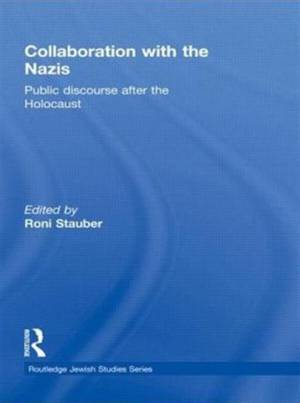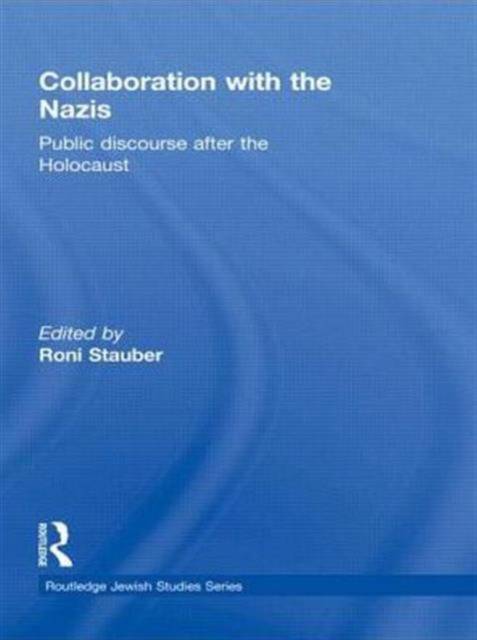
- Afhalen na 1 uur in een winkel met voorraad
- Gratis thuislevering in België vanaf € 30
- Ruim aanbod met 7 miljoen producten
- Afhalen na 1 uur in een winkel met voorraad
- Gratis thuislevering in België vanaf € 30
- Ruim aanbod met 7 miljoen producten
Collaboration with the Nazis
Public Discourse After the Holocaust
Omschrijving
This book examines the changes in representing collaboration, during the Holocaust, especially in the destruction of European Jewry, in the public discourse and the historiography of various countries in Europe that were occupied by the Germans, or were considered, at least during part of the war, as Germany's allies or satellites. In particular, it shows how representations and responses have been conditioned by national and political trends and constraints. As historical background to the issues of postwar collective memory and public discourse, it includes references to and short descriptions of major manifestations of collaboration, chiefly in regards to the Jews, in each of these countries during the war. Whether they were Communist or democratic regimes, the book shows how the sudden burden of the past was suppressed, denied or distorted in various periods. Covering a wide area of both Eastern and Western Europe from different specialist perspectives, this comprehensive study of collaboration in the Holocaust and its aftermath will be a valuable tool for teachers and students in the field of modern European history and Holocaust studies.
Specificaties
Betrokkenen
- Uitgeverij:
Inhoud
- Aantal bladzijden:
- 320
- Taal:
- Engels
- Reeks:
Eigenschappen
- Productcode (EAN):
- 9780415564410
- Verschijningsdatum:
- 11/08/2010
- Uitvoering:
- Hardcover
- Formaat:
- Genaaid
- Afmetingen:
- 155 mm x 234 mm
- Gewicht:
- 635 g

Alleen bij Standaard Boekhandel
Beoordelingen
We publiceren alleen reviews die voldoen aan de voorwaarden voor reviews. Bekijk onze voorwaarden voor reviews.








